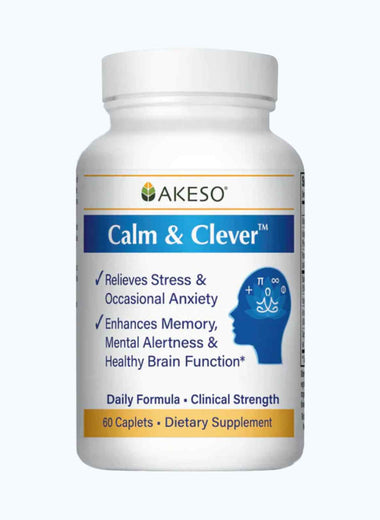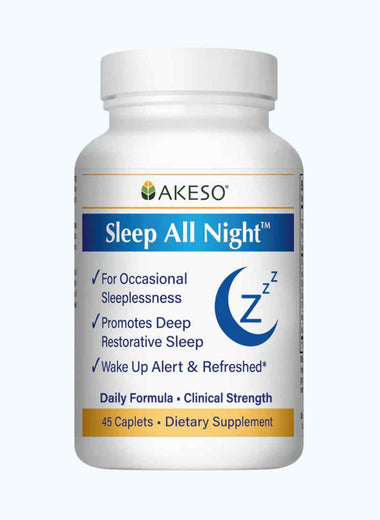How to Maintain a Healthier Brain
Your brain and spinal cord — together, the central nervous system — control every single aspect of your existence. They’re responsible for every thought, emotion, and desire that you feel, and are also in charge of fine-tuning most of your inner functions, like your temperature, heart rate, breathing, and much more.
But as life expectancy expands, neurological disorders and age-related cognitive decline have become a major cause for concern. As a result, cases of Alzheimer’s disease are on the rise. According to the Alzheimer’s Association, “between 2017 and 2025, every state across the country is expected to experience an increase of at least 14% of people with Alzheimer’s disease due to increases in population age 65 and older.”
Neurological conditions cannot always be prevented since getting older is the single greatest risk factor for most brain diseases. But we do have some evidence that lifestyle habits can help protect the brain and keep your mind sharp and active. Here are 5 brain-boosting practices to incorporate into your daily life for a healthier brain.
Socialize more

Socialize more!
There’s no shortage of evidence showing that for a longer, happier life, you must maintain strong and supportive social connections. In fact, studies suggest that loneliness and social isolation can increase the risk of developing dementia by about 50%, along with an increased risk for heart disease, stroke, hospitalization, and premature death.
And, of course, the quality of the relationships matters, too. Studies have linked hostile family relationships with poor health outcomes, and the opposite holds true as well: nurturing and fulfilling relations have been shown to lower the risk of cardiovascular disease and increase life expectancy, compared with those in unhealthy relationships.
Be kind to yourself

Be kind to yourself!
From a very young age, we are taught how to be kind to others. Parents and educators teach us how to share, cooperate, and be good friends. As a matter of fact, there are countless stories that show how people are willing to risk their own lives to save complete strangers in the wake of tragedy time and time again.
Still, many of us are never really taught how to be good friends to ourselves. Somewhere along the way, we get into the habit of being harsher on us than anybody else, rarely giving ourselves the kindness and understanding we so easily extend to just about everybody else.
But self-compassion — the ability to turn kindness, understanding, and acceptance inwards — is critical for your health and wellbeing. Research suggests that the emotional burden of self-blame and self-criticism can be so intense that it deters us from learning to be resilient in the face of failure, whereas benign self-compassionate lowers stress and reduces symptoms of anxiety and depression. Recent research has also shown that self-compassion can improve your mental health by changing how the brain processes chronic physical pain.
Self-compassion is not the same as self-esteem; to cultivate it, you don’t have to love every inch of your body all the time, or repeat empty affirmations that don’t necessarily align with your current mental state. It’s not about feeling sorry for yourself, either. Instead, it’s all about giving yourself the respect you deserve by treating you the same warm and understanding way you would treat a friend — and ultimately, you may feel happier, less stressed, and more resilient as a result.
Get enough sleep

Get enough sleep!
We know that sleeping is critical for a number of vital functions. We also know that memories form and consolidate while we are asleep. Yet almost half of Americans report being chronically sleep-deprived.
Getting 7 to 8 hours of sleep each night is essential for brain plasticity, which is its ability to create and reorganize neural connections to adapt to changes resulting from aging or injury. A recent study in Nature Communications showed that sleep patterns in early and midlife, particularly getting just 6 hours of sleep or less, can increase the risk of being diagnosed with dementia later in life by 30%.
One theory is that without sleep, the brain struggles to perform normally and doesn’t get the chance to create robust pathways that help ward off cognitive decline in old age. In fact, research suggests that a single sleepless night can accelerate cell deterioration in older adults, which is why getting into the habit of getting enough sleep every single night is so important.
Stay on top of your physical health

Stay on top of your physical health!
As much as we like to think of them as two independent organs, there is no brain health without heart health. The heart and the brain are connected through the cardiovascular system, which is made up of the heart, blood vessels, and blood they transport. That blood, oxygenated by the lungs and transported via the complex highway of veins and arteries that carry it to the brain, is what keeps it nourished and energized.
Declining brain function due to of poor circulation can impact your concentration, make you forgetful, and dwindle down your energy levels. And there’s mounting evidence that the lifestyle and genetic conditions that cause the arteries to stiffen and clog, leading to heart attacks and stroke, also become substantial risk factors for Alzheimer’s disease and vascular dementia.
Keep medications in check

Keep medications in check!
While medications are almost exclusively prescribed to improve your health, certain drugs can worsen brain function and increase your risk of developing dementia and other neurological issues.
Of the medications you may want to consider avoiding if you’re worried about cognitive decline, benzodiazepines (Xanax, Valium, Ativan) are amongst the most common. Studies have also linked non-benzodiazepine prescription sedatives (sleeping pills), like Ambien and Lunesta, with poor balance, impaired thinking, and dementia.
As far as over-the-counter medications go, OTC sleeping aids considered anticholinergics (medications that block the neurotransmitter acetylcholine), are also associated with increased dementia risk. OTC anticholinergics also include “PM” versions of analgesics, like Nyquil and Tylenol PM, as well as sedating allergy medications like Benadryl.
Take a healthy brain supplement
Consider taking a daily nutritional supplement containing ingredients proven in clinical studies to support a healthy brain.







